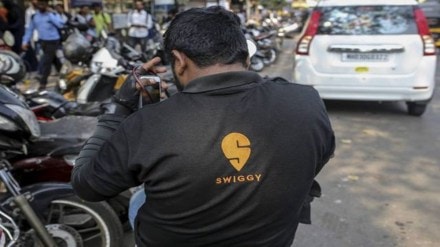Foodtech unicorn Swiggy has begun charging users a ‘platform fee’ of Rs 2 per order, which is presumably aimed at collecting more revenue per order to maintain the food delivery platform.
Currently, the charges are limited to only food delivery orders in a few metro cities and are not applicable to grocery orders on Instamart, said a source aware of the development. The source also added that the platform fee was introduced recently to “develop and maintain” the food delivery service.
Also read: TAM Sports: 18 new categories and 61 new products advertised on TV during the first 25 matches of TATA IPL 16
“Platform fee is essentially collected towards keeping the platform in good shape and for maintaining and developing more features on the platform. This fee is also in line with what many travel and movie ticket booking platforms charge as a convenience fee for blocking seats and tickets. However, Swiggy will not use the collections from this fee for paying delivery partners, and will continue to use primary delivery charge collections to pay delivery personnel,” the source added.
FE couldn’t ascertain whether Swiggy plans to introduce the fee in more cities although it is also applicable on Swiggy One subscription members as well. According to industry estimates both Swiggy and Zomato together contribute to more than 2.5 million orders daily.
In response to FE’s queries a Swiggy spokesperson said, “The platform fee is a nominal flat fee charged on food orders. This fee helps us operate and improve our platform and enhance app features to deliver a seamless app experience.”
The additional fee on food delivery orders comes at a time when consumer Internet platforms have been under pressure to reduce costs and grow with profitability as a centric target. With large funding drying up amongst late-stage ecosystems, startups have also been forced to lay off employees and shut down projects that aren’t profitable.
In January, Swiggy had cut at least 380 jobs in a restructuring exercise announced in an emergency town hall meeting. Swiggy also decided to shut down its meat delivery marketplace as a cost-cutting measure. In an internal email sent to employees in January, Swiggy’s CEO Sriharsha Majety said the growth rate for food delivery businesses in India and globally has slowed down in comparison to its expected projections which had forced the company to revisit overall costs.
Majety also indicated the company had overhired in the past, which may have pushed the company towards the current retrenchment exercise. He also pointed out that in 2021, driven by a surge in demand during the second wave, Swiggy’s food delivery business grew strongly along with an early success with its grocery delivery service Instamart. “With some definite exuberance about the future, we invested into building out our teams to be able to cater to the impending needs of the categories. However, in 2022, two things have happened,” Majety added.
Also read: 3,110 MW hydro power units to go on stream this fiscal
Swiggy’s rival Zomato also fired around 3% of its 3,800 workforce in November 2022. Swiggy has also emerged as tough competition to Zomato as a private company, especially after its $120-million acquisition of restaurant discovery and reservation platform Dineout in May 2022.
In the grocery delivery vertical, Swiggy’s Instamart service had exclusively secured large funding worth $700 million led by investment firm Invesco in January 2022. Following this funding, Zomato also acquired grocery delivery app Blinkit for $570 million, although rumours of the deal had been drifting around since early 2022.
